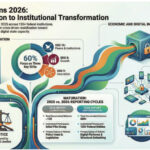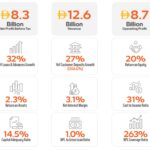The third such rise in only one month is causing commuters in Pakistan to struggle. The most recent round of price hikes, started by Pakistan Railways, includes a 5% rise in cargo goods charges that will affect packages and motorcycles. Prices for metro bus rides between Islamabad and Rawalpindi have increased from Rs. 30 to Rs. 50, with the trip to New Islamabad Airport currently at Rs. 90, pending official announcement the following week.
Within the city, stop-to-stop public transportation costs have increased significantly, reaching Rs. 60 on longer journeys. For instance, the ticket from Raja Bazar to Soan Camp has increased by Rs. 100. The minimum fare for intercity travel has been increased by Rs. 200.
A 10 percent rate rise was implemented by the railways on August 15 due to rising fuel costs, and a further five to eight percent tariff increase was implemented on September 1 as a result of rising petroleum product prices.
In order to deal with this issue, Pakistan Railways has placed limitations on passengers, prohibiting them from bringing chicks, birds, or luggage weighing more than 20 kg aboard trains. These objects can be transported by passengers by paying additional booking fees for cargo.
These fare increases have extensive economic repercussions. For instance, the price of a Tezgam railway ticket between Rawalpindi and Karachi has increased to Rs. 3,350 in economy class, Rs. 7,600 in business class, and Rs. 11,000 for AC Sleeper class. Railways are now almost as expensive as roads due to rising cargo fares.
Railways are not the only ones affected; motorcycle-hailing services like Bykea have increased prices as well, almost tripling rates for the same distances, angering passengers. In addition, delivery fees for items like groceries, plumbing, furniture, veggies, and fruits sent to inner-city retailers have increased by 40 to 50 percent.
The Regional Transport Authority (RTA) has not yet addressed these recent increases in transportation costs, despite the significant burden they place on passengers. As a result, many are finding it difficult to keep up with the rising expense of travel, further taxing their finances and making their difficulties worse. Given the continuing increase in transportation expenses, the situation continues to be of great concern to the general public.







